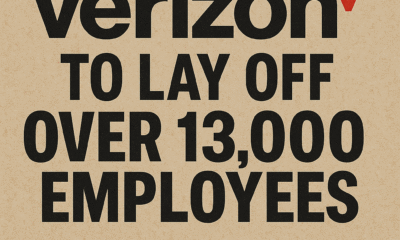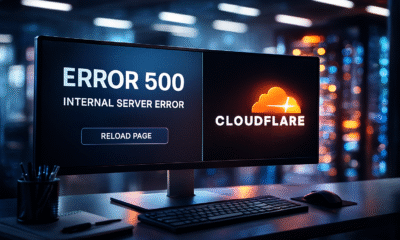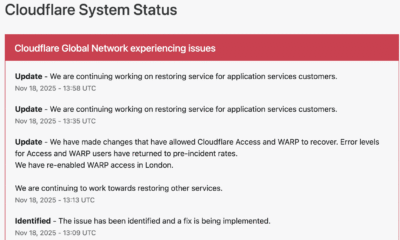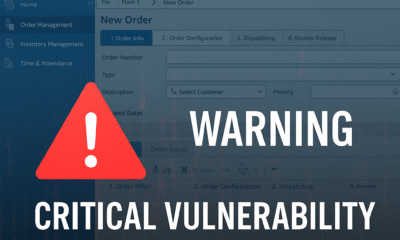ECONOMY
Israel and Hezbollah Accuse Each Other of Ceasefire Violations; Oil Prices React

Less than two days into a U.S.- and French-brokered ceasefire between Israel and Hezbollah, both parties have accused each other of violations, casting doubt on the truce’s durability. The ceasefire, established to halt over a year of hostilities, is now under significant strain.
Ceasefire Breaches
The Israeli military reported that its tanks fired upon vehicles in southern Lebanon, alleging that these movements breached the ceasefire terms. Israel claims the vehicles were transporting Hezbollah operatives in violation of the agreement. Conversely, Hezbollah and the Lebanese army accused Israel of targeting civilians returning to their homes, asserting that Israel’s actions constitute a breach of the truce.
The ceasefire agreement stipulates a phased withdrawal of Israeli forces from southern Lebanon and requires Hezbollah to relocate its heavy weaponry north of the Litani River. Lebanese and United Nations Interim Force in Lebanon (UNIFIL) troops are tasked with maintaining security in the buffer zone. Despite these arrangements, tensions remain elevated, with both sides expressing readiness to respond to perceived provocations.
Impact on Oil Markets
The geopolitical instability has had immediate repercussions on global oil markets. Following reports of ceasefire violations, oil prices experienced fluctuations. Brent crude and U.S. West Texas Intermediate crude futures both saw slight decreases of 0.2%, influenced by the unexpected rise in U.S. gasoline inventories and the fragile Middle Eastern truce.
Market analysts suggest that the ceasefire’s fragility contributes to ongoing volatility in oil prices. The Middle East’s significance in global oil production means that any escalation in regional conflicts can lead to supply concerns, thereby affecting prices. Additionally, traders are closely monitoring the upcoming OPEC+ meeting, where decisions on oil output could further influence market dynamics.
International Response
The international community has expressed concern over the ceasefire’s potential collapse. U.S. officials, instrumental in brokering the truce, have urged both parties to adhere strictly to the agreement’s terms to prevent further escalation. The United Nations has also called for restraint, emphasizing the importance of maintaining peace and stability in the region.
Outlook
The situation remains highly fluid, with the potential for rapid developments. Both Israel and Hezbollah have signaled their commitment to the ceasefire, yet mutual distrust and recent accusations underscore the challenges in sustaining the truce. The coming days will be critical in determining whether the ceasefire can hold or if the region will witness a resurgence of hostilities.
business
Verizon Slashes Jobs in Record-Breaking Layoff — Here’s What We Know
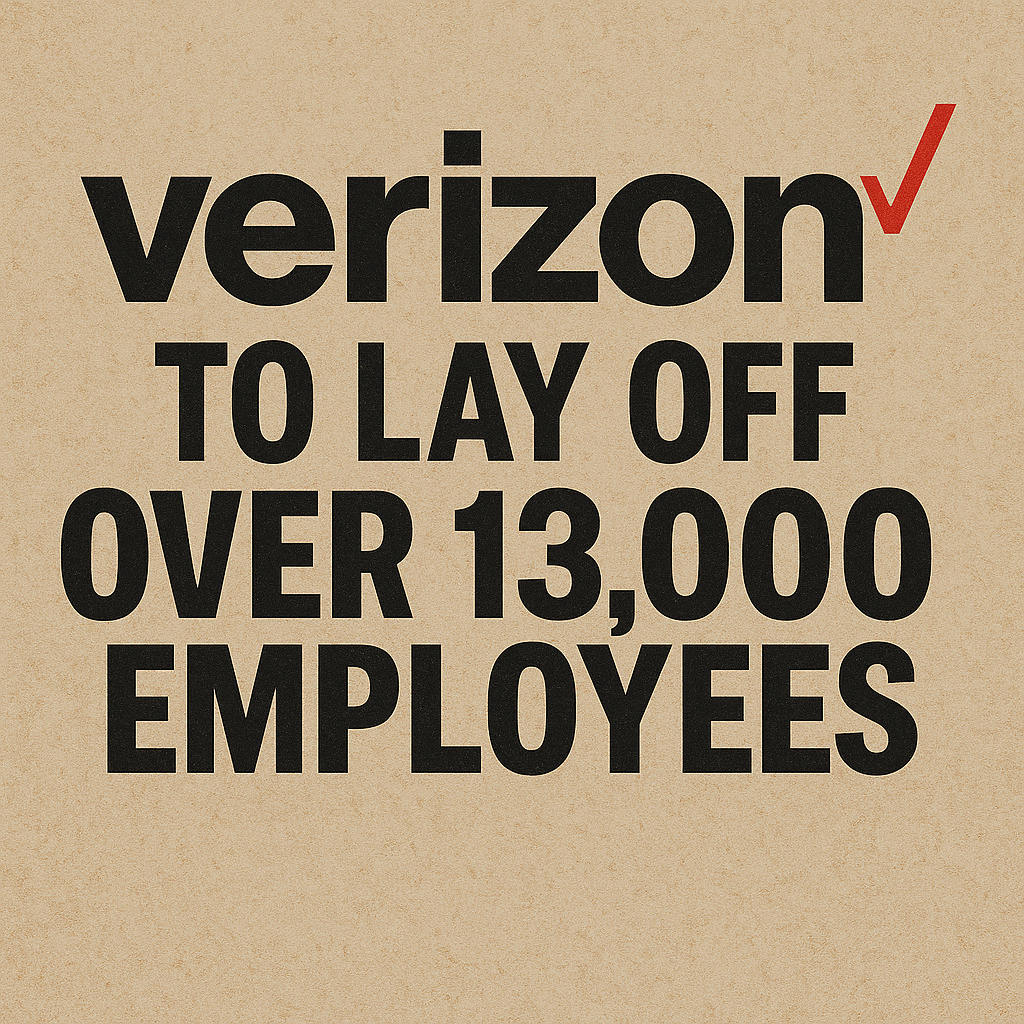
Verizon announced a sweeping workforce reduction that will affect “more than” 13,000 employees — roughly 13% of its global headcount — in what CEO Dan Schulman calls the company’s largest-ever layoff. In an internal memo, Schulman says the move is intended to “simplify our operations to address the complexity and friction that slow us down and frustrate our customers.” The company also plans to cut outsourced and outside labor costs significantly. U.S.-based staff will begin receiving notifications today; employees outside the U.S. will be informed in the “coming weeks,” the Wall Street Journal reports
What Verizon says
- Reason: operational simplification and removing friction that hurts customer experience.
- Scale: “more than” 13,000 roles, about 13% of the workforce.
- Outsourcing: a significant reduction in outsourced and outside labor spending is part of the plan.
- Timing: U.S. notifications begin immediately; international notifications will follow.
Immediate impact
- Employees: tens of thousands will be affected directly or indirectly. U.S. notifications beginning today means many workers will learn their status immediately.
- Operations: Verizon says the goal is to reduce complexity and improve service — but short-term disruption to teams and projects is possible as roles are consolidated.
- Customers: Verizon frames the change as a way to speed decision-making and improve customer experience, though execution risk exists during the transition.
- Outsourced partners: vendors and contract workers can expect renegotiation or reductions.
What affected employees should do now
- Check official communications from HR and your manager for next steps and severance details.
- Ask about outplacement support (resume help, job counseling) and whether the company offers extended healthcare, COBRA assistance, or phased transitions.
- Document your work (accomplishments, repos, access) and secure personal copies of non-sensitive materials.
- File for unemployment as soon as possible where eligible and update LinkedIn and your network.
- Use company resources (employee assistance programs, career centers) and local talent services.
What managers and the company should prioritize
- Clear, compassionate communications and FAQs for affected employees.
- Fast, transparent explanation of severance, benefits continuation, and outplacement services.
- Careful workload redistribution and project continuity plans to avoid customer impact.
- A public-facing message to reassure customers and investors about service continuity and long-term strategy.
Market and strategic context (what this implies)
- Verizon is attempting aggressive cost reduction while refocusing on product and service quality (e.g., 5G, fixed wireless, enterprise services).
- Cutting outsourced labor and internal layers can reduce costs but carries execution risk: lost institutional knowledge, lowered morale, and short-term productivity dips.
- Investors may welcome lower operating expenses; customers and regulators will watch for service degradation.
business
🇲🇦 King Mohammed VI’s Speech Sparks Heated Debate in Parliament — “جيل زد يُجيب”
Rabat — October 2025
Inside Morocco’s Parliament, tension and reflection filled the air just hours after His Majesty King Mohammed VI delivered his opening-session speech. What was meant as a national roadmap quickly turned into a day of open confrontation, emotional testimonies, and unexpected admissions from members of both majority and opposition blocs.
🏛️ A Speech That Touched Nerves
The King’s address, described by analysts as “direct and reform-oriented,” called for greater social justice, job creation, and balanced development across Morocco’s regions.
“No village left forgotten, no coast without a hand,” the King declared — a message that resonated deeply with citizens and lawmakers alike.
Within hours, parliamentary corridors buzzed with interviews, arguments, and introspection. Some MPs hailed the speech as “a moral reset,” while others questioned whether the government was capable of turning royal vision into tangible results.
🧠 From Rabat to the Sahara — Gen Z Responds
Younger members of Parliament — labeled as جيل زد (Gen Z) — became the focus of cameras and public curiosity. Many expressed frustration at what they see as a widening gap between political promises and everyday realities faced by Moroccan youth.
“The King spoke about unity and work. We agree — but the youth need a chance to prove themselves,” said one 28-year-old deputy.
“We have the energy; the system just needs to open its doors.”
Another young MP caused a social-media storm after saying that “in some ways, Moroccan social values are stronger than Germany’s.”
Critics accused him of downplaying Europe’s economic strength, while others applauded his pride in Moroccan family cohesion.
He later clarified his words, emphasizing that every nation faces challenges — and that Morocco’s real wealth lies in its people.
💬 Resignation, Reflection, and Responsibility
Just a week earlier, one deputy had submitted his resignation in protest over what he called “a lack of listening to the new generation.”
After the King’s address, he withdrew it.
“The royal speech gave me renewed hope. This is not the time to quit — it’s time to work,” he told reporters.
Across party lines, both RNI and PAM youth wings echoed similar messages: commitment to reform, but also impatience with bureaucracy.
Several MPs criticized ministers who, they said, “do not answer calls, do not reply to written questions, and have lost touch with citizens.”
⚖️ Opposition Voices: ‘A Government in Denial’
Members of the opposition used the session to accuse the cabinet of denial and poor communication, arguing that ministers are “living in a different reality” from citizens struggling with prices and unemployment.
“The royal messages were clear,” said one opposition leader. “The problem is not the King’s vision — it’s implementation.”
🌍 Morocco’s Path Forward
Analysts note that the King’s address aligned with long-standing themes: national cohesion, balanced territorial development, and respect for dignity in public service.
But the 2025 context — economic pressure, youth disillusionment, and the digital activism of Gen Z — gives these calls new urgency.
“This generation communicates differently,” said a policy researcher. “If institutions don’t adapt, they’ll lose credibility.”
🕊️ A Message Beyond Politics
As the parliamentary session ended, one young MP summed up the mood:
“الملك تكلّم… ونحن سنُجيب بالعمل — The King spoke, and we will answer through action.”
For now, the chamber that often echoes with partisan debates found itself united — briefly — under a single message:
Morocco’s future belongs to its youth, but responsibility belongs to everyone.
business
From Potatoes to Paleontology: Morocco’s Big Wins on August 14, 2025
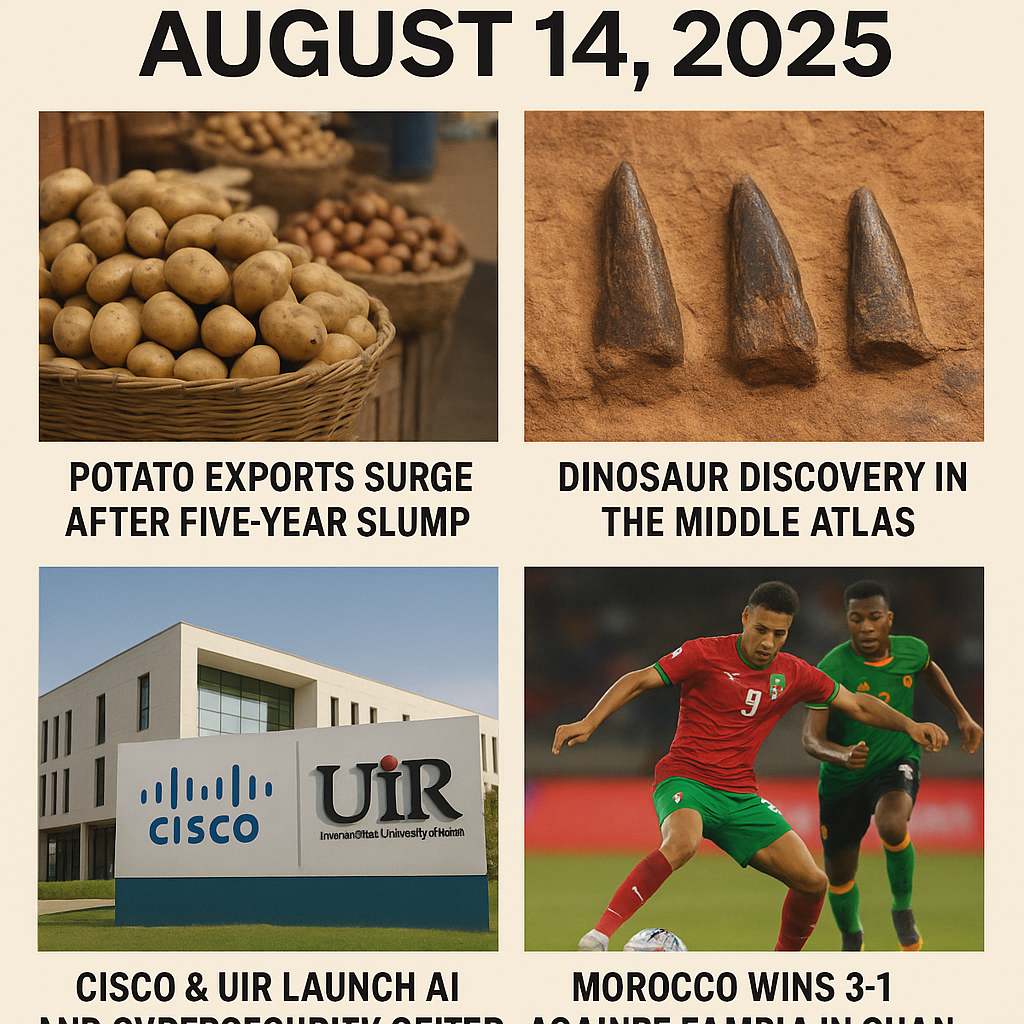
From potatoes to paleontology, Morocco posts gains across economy, science, and sport, while DV-2025 visa delays put pressure on applicants.
Morocco’s potato exports surged after a five-year slump, paleontologists uncovered the country’s oldest Turiasaurian teeth in the Middle Atlas, and UIR teamed with Cisco on a new AI & cybersecurity center. Authorities also approved the Amazigh name “Massinissa,” Morocco beat Zambia 3–1 at CHAN, and DV-2025 lottery winners sounded alarms over stalled interviews. FreshPlazaMorocco World News+3Morocco World News+3Morocco World News+3Hespress
The Briefing
Morocco’s news cycle on August 14, 2025 offered a snapshot of a country diversifying—export recovery in agri-food, frontier science with Jurassic-era finds, digital capacity-building through a new AI/cyber hub, and a culture-rights win on Amazigh naming—rounded off by a CHAN victory and visa-processing anxieties for DV-2025 winners. FreshPlazaMorocco World News+3Morocco World News+3Morocco World News+3Hespress
Economy — Potatoes Are Back
After five years of decline, Morocco’s ware-potato exports rebounded to 42,900 tons worth US$14.9 million between July 2024 and May 2025—a 5.7× increase versus the prior season. Analysts credit renewed West African trade links and firmer European demand. The uptick helps farmers and cold-chain logistics while testing resilience ahead of the 2025–26 campaign. FreshPlaza
Explainer takeaway: A stronger potato campaign increases rural incomes and stabilizes supply chains; monitoring fertilizer prices, shipping rates, and weather will indicate whether the rebound is durable.
Science — 160-Million-Year-Old Giants
Researchers identified three dinosaur teeth from the Middle Atlas (El Mers III Formation), marking the oldest evidence of Turiasauria on mainland Africa—a Middle Jurassic lineage previously best known from Iberia. The peer-reviewed study tightens biogeographic links between North Africa and Europe and invites fresh fieldwork in Boulemane province. Morocco World NewsYabiladiResearchGate
Explainer takeaway: Morocco’s Jurassic strata continue to fill global fossil gaps, boosting scientific tourism and training opportunities for local geoscience programs.
Technology — UIR × Cisco Unveil AI & Cybersecurity Center
The International University of Rabat (UIR) and Cisco signed an MoU to create a Cisco EDGE Incubation Center focused on AI and cybersecurity, aligning with Morocco’s Digital 2030 ambitions. The hub aims to link academia, startups, and public services while leveraging Cisco Networking Academy pathways. Morocco World NewsMap NewsMedafrica TimesLinkedIn
Explainer takeaway: Expect new pipelines for SOC talent, secure-cloud skills, and AI safety research—areas where Morocco seeks digital sovereignty and exportable know-how.
Society — A Win for Amazigh Naming Rights
Following an initial refusal, Meknes authorities approved the Amazigh name “Massinissa.” The reversal reflects ongoing normalization of Amazigh names in civil registry practice and reduces administrative friction for families seeking culturally rooted identities. Morocco World NewsHespressFacebook
Explainer takeaway: Documentation shapes access to education, healthcare, and travel; clearer acceptance of Amazigh names streamlines everyday life and affirms linguistic rights.
Sport — CHAN Boost: Morocco 3–1 Zambia
Morocco’s locally based national team defeated Zambia 3–1, strengthening its CHAN 2024 (played in 2025) campaign and securing a quarterfinal berth. Wins at CHAN raise player visibility, support domestic leagues, and can lift transfer valuations for homegrown talent. Hespress
Explainer takeaway: CHAN is a showcase for domestic football systems; Morocco’s result supports the broader talent pipeline from Botola clubs to continental competition.
Migration — DV-2025 Interview Delays
DV-2025 lottery winners in Morocco report stalled interview scheduling at the U.S. Consulate in Casablanca as the September 30, 2025 fiscal-year deadline nears, raising fears that selectees could time out despite “current” case numbers. Civil-society calls urge transparent scheduling and capacity updates. Morocco World News
Explainer takeaway: Diversity Visas are time-bound; absent appointments by the end of the fiscal year, eligibility ends—even for qualified selectees. Applicants should ensure DS-260s are complete and monitor consular notices.
What to Watch Next
- Agri-exports: Does the potato rally carry into Q4 logistics and pricing? FreshPlaza
- Science & tourism: Will new Middle Atlas digs expand fossil trails and museum programs? Morocco World News
- Talent & tech: Can the UIR–Cisco hub seed startups and feed national SOC capacity by 2026? Morocco World News
- Civil registry: Are further Amazigh naming cases resolved consistently across regions? Hespress
- CHAN: Injury management and fatigue as fixtures compress. Hespress
- DV-2025: Any scheduling updates from Casablanca before Sept. 30. Morocco World News



